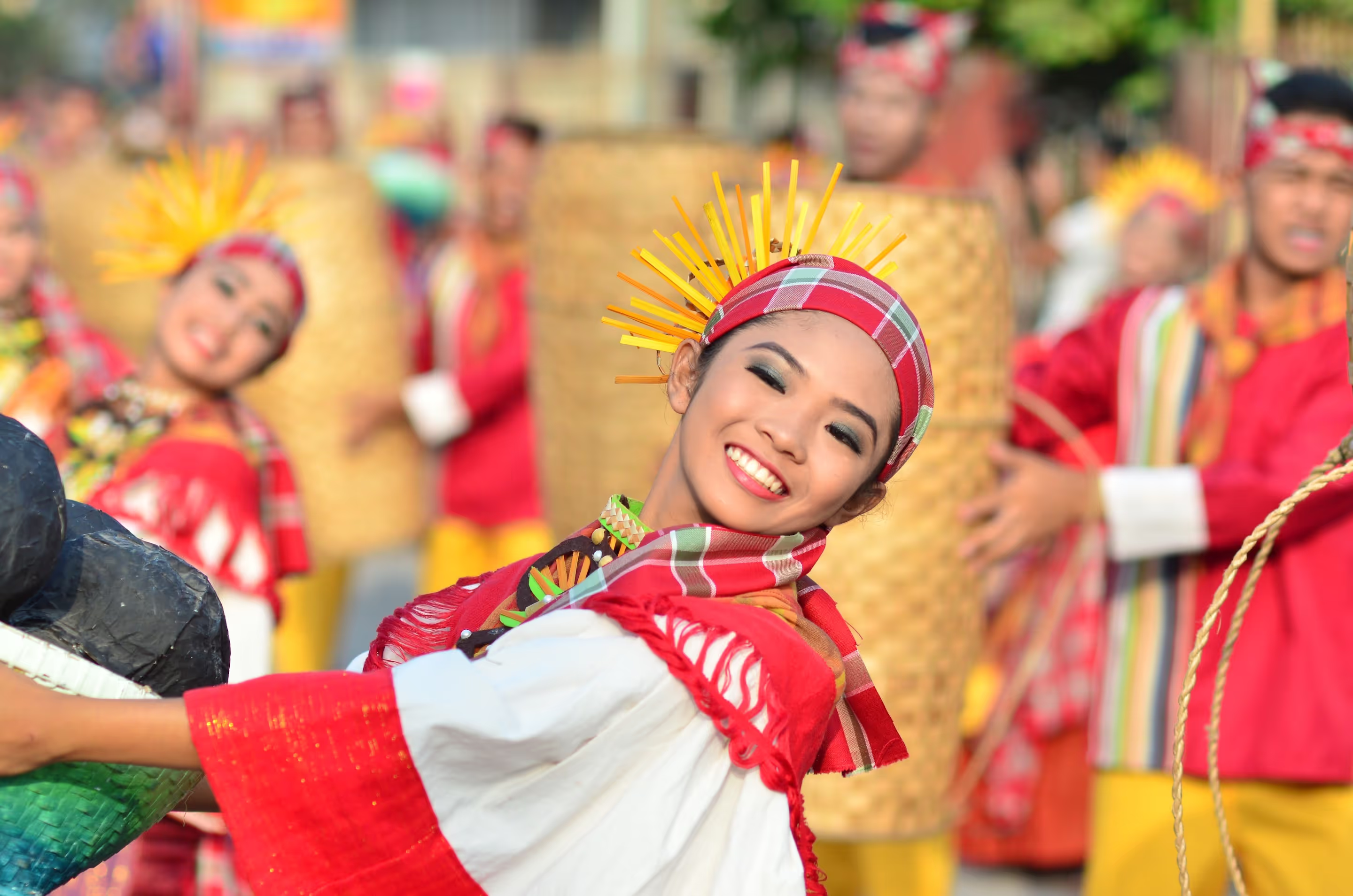The Best Nonprofits to Support AAPI Heritage Month

Asian American and Pacific Islander Heritage Month (AAPIHM) is a month-long celebration of the history, culture, and achievements of Asian Americans and Pacific Islanders (AAPIs). It is observed every May in the United States and is a time to recognize the contributions of AAPIs to American society.
AAPIs are a diverse group of people, with roots in over 50 countries and territories in Asia and the Pacific. They come from a wide range of ethnic and cultural backgrounds and speak over 100 languages. AAPIs are the fastest-growing racial or ethnic group in the United States and makeup over 7% of the population.
AAPIs have a long and rich history in the United States. Asian Americans have played a vital role in the development of the country. AAPIs have served in the military, founded businesses, and made significant contributions to the arts, sciences, and humanities.
AAPI Heritage Month is a time to celebrate the achievements of AAPIs and to learn more about their history and culture. It is also a time to reflect on the challenges that AAPIs have faced, and to recommit to the fight for equality and justice for all.
Here are some ways to celebrate AAPI Heritage Month:
- Attend a cultural event or festival.
- Read a book or watch a movie about Asian American or Pacific Islander culture.
- Learn about the history of AAPIs in the United States.
- Talk to your friends and family about AAPI Heritage Month.
- Get involved in your community and advocate for the rights of AAPIs.
- Donate to the nonprofits supporting AAPIs
This list of nonprofits supports Asian Americans and Pacific Islanders:
Asian Arts Initiative
The Asian Arts Initiative (AAI) is a community-based arts center in Philadelphia, Pennsylvania. It was founded in 1993 by a group of artists and community leaders who were concerned about the lack of opportunities for Asian American artists in the city.
AAI's mission is to "engage artists and everyday people to create art that explores the diverse experiences of Asian Americans, addresses our social context, and imagines and effects positive community change."
The organization offers a variety of programs and services, including:
- Exhibitions of visual art, photography, and film
- Performances of theater, dance, and music
- Educational programs for youth and adults
- Artist residencies and fellowships
- Community-building initiatives
AAI's programs are designed to provide opportunities for Asian American artists to create, exhibit, and perform their work. The organization also works to promote understanding and appreciation of Asian American culture through its educational and community-building initiatives.
AAI is located in the Chinatown North neighborhood of Philadelphia. The organization's headquarters is a former Warner Bros. theater that was renovated in 2005. AAI also has a satellite gallery in the Logan Square neighborhood.
AAI is a non-profit organization that receives funding from a variety of sources, including the city of Philadelphia, the state of Pennsylvania, and private foundations. The organization also relies on the support of its members and donors.
AAI is a vital part of the Asian American community in Philadelphia. The organization provides opportunities for artists to create and share their work, and it works to promote understanding and appreciation of Asian American culture. AAI is a valuable resource for the city of Philadelphia and the region as a whole.
AAPI Equity Alliance
AAPI Equity Alliance (AAPI Equity) is a non-profit organization that advocates for the rights of Asian Americans and Pacific Islanders (AAPIs) in Los Angeles County. The organization was founded in 1973 as the Asian Pacific Policy and Planning Council (APPPC), and changed its name to AAPI Equity in 2022.
AAPI Equity's mission is to "advance racial and economic justice for Asian Americans and Pacific Islanders through policy advocacy, civic engagement, and capacity building."
The organization works on a variety of issues, including:
- Anti-Asian hate
- Education
- Economic opportunity
- Health
- Housing
- Immigration
- Voting rights
AAPI Equity has a long history of advocacy for AAPIs in Los Angeles County. The organization has played a key role in securing funding for AAPI-serving organizations, passing legislation to protect AAPIs from discrimination, and raising awareness of AAPI issues.
Here are some of AAPI Equity's recent accomplishments:
- In 2021, AAPI Equity played a key role in passing a law that requires the Los Angeles Police Department to collect data on hate crimes against AAPIs.
- In 2022, AAPI Equity helped to secure $10 million in funding for AAPI-serving organizations from the Los Angeles County Board of Supervisors.
- AAPI Equity is currently working on a campaign to raise awareness of the rising rates of anti-Asian hate in Los Angeles County.
AAPI Equity is a vital part of the AAPI community in Los Angeles County.
National Asian Pacific Women’s Forum
The National Asian Pacific American Women's Forum (NAPAWF) is a national non-profit organization that advocates for the rights of Asian American and Pacific Islander (AAPI) women and girls. The organization was founded in 1996 by a group of AAPI women who recognized the need for an organization that would amplify their voices and experiences.
NAPAWF's mission is to "build power with AAPI women and girls to influence critical decisions that affect our lives, our families, and our communities."
The organization works on a variety of issues, including:
- Economic justice
- Education
- Health
- Immigrant and refugee rights
- Reproductive justice
- Violence against women
NAPAWF has a long history of advocacy for AAPI women and girls. The organization has played a key role in passing legislation to protect AAPI women from violence, securing funding for AAPI-serving organizations, and raising awareness of AAPI issues.
NAPAWF is a valuable resource for AAPI women and girls. The organization provides information and resources on a variety of issues, and it works to build power and unity within the AAPI community.
Here are some of NAPAWF's recent accomplishments:
- In 2021, NAPAWF played a key role in passing the Violence Against Women Reauthorization Act, which includes important protections for AAPI women.
- In 2022, NAPAWF helped to secure $10 million in funding for AAPI-serving organizations from the U.S. Department of Health and Human Services.
- NAPAWF is currently working on a campaign to raise awareness of the rising rates of anti-Asian hate in the United States.
NAPAWF is a vital part of the AAPI community in the United States.
Asian Americans Advancing Justice
Asian Americans Advancing Justice (AAJC) is a national non-profit organization that advocates for the civil and human rights of Asian Americans and Pacific Islanders (AAPIs). The organization was founded in 1982 by a group of AAPI activists and lawyers who recognized the need for an organization that would fight for the rights of AAPIs.
AAJC's mission is to "promote a fair and equitable society for all by working for civil and human rights that empower Asian Americans and Pacific Islanders and other underserved communities."
The organization works on a variety of issues, including:
- Anti-Asian hate
- Civil rights
- Criminal justice reform
- Education
- Economic opportunity
- Immigration
- Voting rights
AAJC has a long history of advocacy for AAPIs. The organization has played a key role in passing legislation to protect AAPIs from discrimination, securing funding for AAPI-serving organizations, and raising awareness of AAPI issues.
Here are some of AAJC's recent accomplishments:
- In 2021, AAJC played a key role in passing the COVID-19 Hate Crimes Act, which provides funding to law enforcement agencies to investigate and prosecute hate crimes against AAPIs.
- In 2022, AAJC helped to secure $10 million in funding for AAPI-serving organizations from the U.S. Department of Health and Human Services.
- AAJC is currently working on a campaign to raise awareness of the rising rates of anti-Asian hate in the United States.
Asian Art Museum of San Francisco
The Asian Art Museum of San Francisco (AAM) is a museum in San Francisco, California that specializes in Asian art. It is one of the largest Asian art museums in the United States, with a collection of over 18,000 works of art from all major Asian countries and traditions. The museum's collection spans over 6,000 years of history and includes a wide range of art forms, including painting, sculpture, ceramics, textiles, jewelry, and metalwork.
The AAM was founded in 1966 by a group of local philanthropists and art lovers. The museum's first home was in the War Memorial Opera House, but it moved to its current location on Larkin Street in 1989. The new building, designed by architect Gae Aulenti, was praised for its innovative design and its integration of traditional Asian and modern Western architectural elements.
The AAM is a major cultural institution in San Francisco, and it attracts over 500,000 visitors each year. The museum offers a variety of public programs, including lectures, films, and family activities. It also has a robust educational program that reaches out to schools and community groups throughout the Bay Area.
The AAM is committed to making Asian art accessible to everyone. The museum offers free admission to all visitors on the first Tuesday of every month, and it has a variety of programs and resources for people with disabilities. The museum also has a strong commitment to diversity and inclusion, and it is working to make its collection and programs more representative of the diversity of the Asian community.
The AAM is a vital part of the cultural landscape of San Francisco, and it is playing an important role in promoting understanding and appreciation of Asian art and culture.
Asian Pacific Fund
The Asian Pacific Fund (APF) is a community development financial institution (CDFI) that invests in Asian and Pacific Islander (API) communities in the San Francisco Bay Area. APF was founded in 1984 by a group of API leaders who recognized the need for a financial institution that would provide capital and other resources to API businesses and organizations.
APF is a non-profit organization that is governed by a board of directors that is composed of API leaders from the Bay Area. APF's staff is also majority API. APF is committed to using its resources to support API communities and to promote economic development and opportunity for API individuals and families.
APF offers a variety of financial products and services to API businesses and organizations, including:
- Loans: APF provides loans to API businesses and organizations for a variety of purposes, including working capital, equipment purchases, and real estate development.
- Investments: APF invests in API businesses and organizations through a variety of vehicles, including venture capital, private equity, and debt investments.
- Technical assistance: APF provides technical assistance to API businesses and organizations on a variety of topics, including business planning, marketing, and financial management.
- Education and training: APF provides education and training to API businesses and organizations on a variety of topics, including financial literacy, entrepreneurship, and leadership development.
APF has invested over $1 billion in API communities in the Bay Area. APF's investments have helped to create and support thousands of jobs, and they have helped to revitalize API neighborhoods and communities. APF is a vital part of the economic development and opportunity for API individuals and families in the Bay Area.
Search to Involve Filipino Americans
Search to Involve Pilipino Americans (SIPA) is a non-profit organization based in Los Angeles, California.
They provide a variety of services to Filipino Americans, including:
- Health and human services, such as case management, counseling, and health education
- Community economic development, such as small business assistance and job training
- Arts and culture programming, such as dance, music, and theater performances
- Civic engagement and advocacy, such as voter registration and voter education
SIPA was founded in 1973 by a group of Filipino American community leaders who were concerned about the lack of resources and services available to Filipino Americans in Los Angeles. SIPA has since grown into a major provider of services to Filipino Americans, and it is one of the largest and most respected Filipino American organizations in the United States.
SIPA's mission is to "enrich the lives of Pilipino Americans and others by providing health and human services, community economic development, arts and culture, and a place where people of all backgrounds can come together to strengthen community." SIPA's vision is to be "a leading force in the empowerment of Pilipino Americans and others, and to create a more just and equitable society for all."
Chinese for Affirmative Action
Chinese for Affirmative Action (CAA) is a community-based civil rights organization located in San Francisco Chinatown. We fight for social justice for Chinese Americans and Asian Americans and Pacific Islanders in California.
CAA was founded in 1969 by a group of Chinese American community leaders who were concerned about the lack of opportunities for Chinese Americans in education, employment, and housing. CAA has since grown into one of the leading civil rights organizations in the United States.
CAA's mission is to "defend and promote the civil and political rights of Chinese and Asian Americans within the context of and in the interest of, advancing multiracial democracy in the United States."
CAA works on a variety of issues, including:
- Education: CAA advocates for equal access to quality education for all students, regardless of race or ethnicity. CAA also works to close the achievement gap between Asian American and Pacific Islander students and other students.
- Employment: CAA advocates for fair and equal employment opportunities for Asian Americans and Pacific Islanders. CAA also works to address the issue of wage discrimination against Asian Americans and Pacific Islanders.
- Housing: CAA advocates for fair and affordable housing for all Californians, including Asian Americans and Pacific Islanders. CAA also works to address the issue of housing discrimination against Asian Americans and Pacific Islanders.
- Immigration: CAA advocates for comprehensive immigration reform that includes a pathway to citizenship for undocumented immigrants. CAA also works to protect the rights of immigrants, including Asian American and Pacific Islander immigrants.
- Voting rights: CAA advocates for the right to vote for all Californians, including Asian Americans and Pacific Islanders. CAA also works to register Asian American and Pacific Islander voters and to educate them about their voting rights.
Related resources
ESG vs. CSR: What's the Difference?




ESG vs. CSR: What's the Difference?
8 Corporate Volunteering Ideas You Can Bring to Life with Groundswell




8 Corporate Volunteering Ideas You Can Bring to Life with Groundswell
How Do I Create an Employee Volunteer Program? 4 Steps for Success




